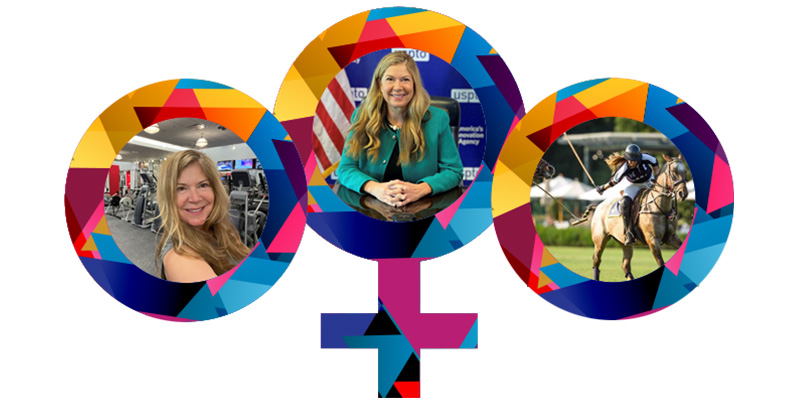The day I learned that the Leahy-Smith America Invents Act (AIA) – arguably the most impactful patent legislation since the 1950s – had been published online as a draft bill by Congress, I was on a plane from San Francisco to San Diego. Coincidentally, I was prepping to speak at a conference on the potential impact of the legislation and the various interests involved. I quickly digested the draft bill and adjusted my notes, cognizant that many in the room had a vested interest in the legislation and some had lobbied Congress for change.
After we finished our talk, a senior leader came up to me and said, “Wow! I’ve heard you speak a lot. But, I’ve never seen you so passionate and excited. You looked like you were having so much fun up there.”
Was it the topic? Was there something about the AIA that was just so much more exciting to me than patent prosecution, prosecution laches, patent litigation or moderating judges’ panels?
With all due respect to the bill, no.
What was different about that discussion was that I was presenting at a women’s conference that a few of my colleagues and I conceived of and planned. This was before women’s conferences were a “thing,” so it was also the first women’s conference at which I spoke. The audience was all women. The space, food, and drinks were tailored to the audience. Dark suits were replaced with resort wear. Stale bagels with specialty chocolates.
For me, this was an “aha” moment! As someone who started in mathematical physics, graduated with bachelor’s and master’s degrees in electrical engineering, was doing early research in artificial intelligence at GE Aerospace and led design and manufacturing teams, the usual way I bonded with my colleagues was by taking up their sports (windsurfing for quite a few years and softball) and watching Monday Night Football. Though I didn’t take to heart when I was told early on that nobody would take me seriously because I smiled and laughed too much, I did – perhaps subconsciously – adapt to the world around me. I processed the data of what “success” and “leadership” looked like and slowly adapted my behavior. When I spoke on stage, I looked and sounded like my colleagues and the bulk of the others who spoke. Nobody asked me to do that or applauded me for doing it. It was just how I naturally acclimated to the world around me.
It was on that day, and because of that comment, that I realized the power and joy in being me. In being authentic.
Since that time, I have spoken more times than I can remember of the power of being authentic and how to achieve success as your own authentic self. Here are two key lessons I want to share:
First, figure out what you want and ask for it. Studies show that there is, what I have come to define as, an “ask bias.” Women do not tend to ask as much as men. Asking can seem selfish or brash and the fear of getting a “no” can seem daunting. If you don’t ask, you will get behind both in work and in life. You will let perceptions of what you want, or what others expect of you, control your actions.
The key is finding a way to ask in your own authentic way that doesn’t make you feel like anyone other than yourself. Linda Babcock has some great writing in this area to which I often refer women. In a Harvard Business Review article she wrote: “[W]e’ve discovered another, subtler source of inequality: Women often don’t get what they want and deserve because they don’t ask for it.” She noted that “[w]omen tend to assume that they will be recognized and rewarded for working hard and doing a good job. Unlike men, they haven’t been taught that they can ask for more.”
Babcock makes it clear that this is not just an issue of socialization. Managers also bear responsibility and “should drive larger scale cultural change.”
As to the latter, Babcock suggests an algorithm I employed immediately after joining the United States Patent and Trademark Office (USPTO). She remarks that, “[w]hen a man asks for a raise [or opportunity and a woman doing comparable work does not], a good manager should consider giving both, or neither, of them raises.” At the USPTO, I’ve encouraged leadership to consider for positions and opportunities not just those who first come to mind, but anyone else who would have the same predicted success in the role. I encourage them to consider those who ask and anyone else similarly situated who did not ask. I’ve also been working to bring into the agency training on “how to ask” as your own authentic self.
The key for me, personally, is asking politely and on behalf of others or a greater cause.
Let me give you some examples. Years ago, I had a case in the Northern District of California and I asked a junior lawyer – let’s call her Tanya – to argue a motion so I could give her that opportunity. Tanya and I had prepared thoroughly on the merits. But, what I hadn’t prepared her on was how to ask.
Tanya did a fantastic job in her argument. The other lawyer – let’s call him John — argued. Then, the Judge started giving some views. John, a seasoned, aggressive male litigator, interrupted the Judge numerous times saying, “But, but” and making his arguments. Tanya waited for the Judge to ask her for her response. She waited to be called on. The Judge never did. When I saw John getting some traction, I stood up to be recognized to help complete the argument. That was not Tanya’s failure, it was mine.
What I should have taught Tanya was how to ask. For me, I don’t say “But, but.” I don’t interrupt the judge. Instead I politely ask, “Your honor, may I be heard?” Or, “Your honor, may I make a suggestion?” Or, “Your honor, may I respond?” I’ve never received a “no.” And, the ask carves out time to make my argument.
This year I mentored a successful woman leader through JOURNEY, a one-year program to give women access to higher-level connections and enable them to build lifelong networks of support. She – let’s call her Sylvia – said that her title and compensation was lower than those of her male counterparts. Sylvia was going into a performance review and sought advice.
I suggested to her that she tee the issue up in advance so her supervisor was not surprised. I also suggested that she not make it about her and that she not presume her supervisor knew of the disparity. She did exactly that. She explained in advance all the ways in which she could better serve the organization and why it was important to the organization that she be at the same title and salary as her counterparts.
When it comes to job or opportunities, I never focus on what it means to me. Instead, I provide my thoughts on how the position could be used to further the organization’s goals and mission. Or, on how I could be more effective at serving the institution’s goals in the position. It is different for everyone. The key is to find your own authentic way to ask.
And, as my negotiations professor at the University of Pennsylvania would say, “practice every day!” It then becomes innate. My professor would have us practice and ask and would always say you have to give a reason. Data shows that even if the reason is not compelling, just hearing a reason incentivizes the person you ask to say yes. Think about that the next time you are standing in the security line at the airport. If someone asked if they could cut ahead of you, would you be as likely to say yes than if they even gave a simple reason like, “I need to get home”? Probably not.
As for asks or negotiations, you can practice daily. One of the simpler ones I participated in was at a corner store in downtown Philadelphia. I was planning to eat a hot and sour soup for dinner and the recipe called for two eggs. The corner store sold eggs by the dozen, but instead of buying a dozen, I asked if I could buy only two. My “why” was that I only needed two and didn’t want to waste the others. Though I initially got a “no,” I persisted and noted that the place sold breakfast sandwiches and could sell me two of those eggs as opposed to two out of a dozen. I came home with two eggs and the soup was even more tasty for it!
Second, in addition to asking authentically, you owe it to yourself and others to be authentic. To lead with your heart, not just your head. In today’s world with social and physical separation in our work places and even with family and friends, we must do more to connect. Whether you are leading a group or leading up, by being vulnerable and opening yourself up to others to experience the real you – you not only improve your own well-being and joy, you do that for others. You also create the space for them to do the same.
My favorite researcher and speaker on this topic is Brené Brown, a professor at the University of Houston. Many of her talks are available for free online. Brown notes that one of the keys to vulnerability is giving yourself permission to be imperfect. She writes, “[f]or me, that means writing permission slips—to myself.” She continues:
“To be authentic, we must cultivate the courage to be imperfect—and vulnerable. We have to believe that we are fundamentally worthy of love and acceptance, just as we are. I’ve learned that there is no better way to invite more grace, gratitude and joy into our lives than by mindfully practicing authenticity. Even when it’s hard, and even when we’re wrestling with the shame and fear of not being good enough, and especially when the joy is so intense that we’re afraid to let ourselves feel it. It’s these moments in life that demand we show up—that we let go of who we think we’re supposed to be and embrace who we really are.”
I try to lead with authenticity. I don’t recall a meeting – whether it was one of my many internal or external listening sessions, meetings at the White House, or meetings discussing cases or key decisions internally – where I didn’t laugh with others. When I first started at the USPTO, I asked for a town hall immediately and opened myself up to questions. As part of that, I admitted that I’m a right-brained introvert who has been doing a left-brained extrovert job. I love what I do. I love people. But, I need my down time (even if that is writing this article on my computer, taking a walk in nature, or practicing my photography hobby). And, if I respect my own needs first, I am a better professional, and person, for it. I hope you all find your authentic voice, and use it.



